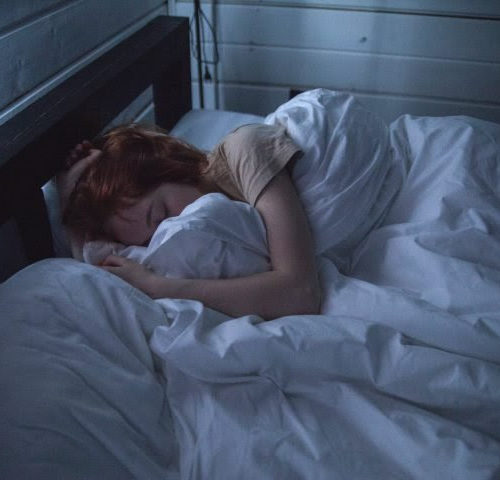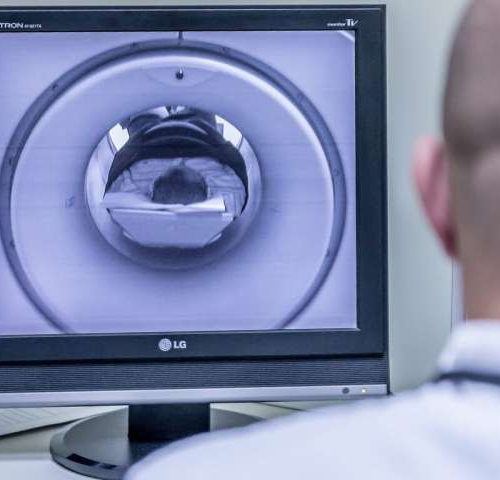AMERICAN ACADEMY OF SLEEP MEDICINE DARIEN, IL – A new study found that treating obstructive sleep apnea with CPAP therapy increased self-reported physical activity in adults with a history of heart disease. During a mean follow-up period of 3.7 years, the group treated with CPAP therapy reported approximately 20% higher levels of moderate physical activity compared with the...
Tag: <span>Sleep Apnea</span>
Study explores sleep apnea, autoimmune disease link
New research by University of Georgia scientists sheds light on why people with obstructive sleep apnea may have associated autoimmune disorders. The results could lead to better approaches to treatment and possibly new drug therapies. The study, led by Bradley Phillips, builds on previous research showing that obstructive sleep apnea increases the risk for autoimmune diseases. Immune system disorders are a...
Link between sleep apnea and increased risk of dementia
by Monash University A new study by Monash University has found that obstructive sleep apnea (OSA) has been linked to an increased risk of dementia. The study, published in the Journal of Alzheimer’s Disease, and led by Dr Melinda Jackson from the Turner Institute for Brain and Mental Health, found that severe OSA is linked to an...
Sleep apnea linked with higher spine fracture risk among women
WILEY Emerging evidence suggests that obstructive sleep apnea (OSA) may negatively affect bone health. Results from a new study published in the Journal of Bone and Mineral Research now indicate that women with history of OSA may face a higher risk of spine, or vertebral, fractures. Using information from the Nurses’ Health Study, investigators examined data pertaining...
Teens sleep 43 more minutes per night after combo of two treatments, Stanford study finds
STANFORD MEDICINE Teenagers got 43 more minutes of sleep a night after a four-week intervention that reset their body clocks and helped them go to bed earlier, a study from the Stanford University School of Medicine has shown. The treatment had two components: brief, early morning flashes of bright, broad-spectrum white light to reset the teens’ circadian clocks, and cognitive behavioral therapy that motivated them to try earlier bedtimes. The findings...
Lack of sleep affects fat metabolism
by American Society for Biochemistry and Molecular Biology We’re all a little short on sleep during the work week. A new study adds to the mounting evidence about just how harmful lack of sleep can be. In the Journal of Lipid Research, researchers at Pennsylvania State University report that just a few days of sleep...
How sleepless nights compromise the health of your gut
by Champalimaud Centre for the Unknown It is well known that individuals who work night shifts or travel often across different time zones have a higher tendency to become overweight and suffer from gut inflammation. The underlying cause for this robust phenomenon has been the subject of many studies that tried to relate physiological processes with the...
Alzheimer’s research increasingly focused on links to sleep and other behaviors
by Elsevier Sleep and other behavioral topics are growing within Alzheimer’s disease research, according to a new report released today by Elsevier, a global information analytics business specializing in science and health. To coincide with World Alzheimer’s Month, Elsevier analyzed Alzheimer’s research published since the 1970s offering a comprehensive view of the landscape of Alzheimer’s...
Cancer more common in females with severe sleep apnea
By Catharine Paddock PhD Fact checked by Isabel Godfrey Some studies have identified links between sleep apnea and cancer. Now, new research reveals that rates of cancer are higher among females with pronounced symptoms of apnea. The recent study, which features in the European Respiratory Journal, analyzed data on 20,000 adults with sleep apnea. About...
Did you know that people used to sleep twice per night? Maybe we should return to this regime?
Posted Today You have to sleep at least 8 hours per night. Otherwise you’re not going to be able to function and be productive. Eventually insufficient sleep is going to catch up to you and you will feel the consequences. Our work pushes us out of our proper sleeping cycle. But did you know that...


